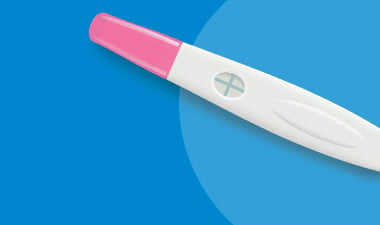On a medium budget parents spend around $304 a week, or almost $16,000 a year per baby, according to Plunket. There’s no doubt - it's expensive.
With that said, a little planning and compromise goes a long way to making your first year of parenthood more affordable. Put these tips into action and you’ll save money, time and stress so you can put all your energy into your little one.
1. Plan for maternity leave
Taking months or years off can be tricky financially so make sure to plan well in advance of your baby’s due date:
- Practice living on one income to see if it’s doable.
- If you’re not able to live on the income you’ll have during maternity leave, spend some time thinking about how you can cut costs.
- Budget for extra expenses you may need, like a family-friendly car.
- Set aside savings to make sure you’re financially secure.
- Pay off high interest debt like credit cards and car loans if possible.
- Ask for help from family if you think you’ll need it.
It’s always better to make these plans in advance. Chances are, when you have a baby you mightn’t have the time or energy.
2. Build your baby buffer
It’s a great idea to have some savings set aside for your maternity leave, especially if you’ve found that you can’t live without the additional income. This will cover large and unexpected costs like car repairs, as well as baby stuff you forgot to plan for and extra time off if needed.
As a rule of thumb, it’s a good idea to aim for at least three months of living expenses, but you may want more if you’re looking at taking a long time off work.
Check Employment NZ here for more information around parental leave and what you may be entitled to.
3. Buy big ticket items in advance
Most baby purchases will be small and regular, like clothes and nappies, but there are a few big ticket items.
It pays to start doing your homework on these in advance to figure out what you want to buy, check out the second hand market and/or be ready for certain items to go on sale. Here’s what you’ll be looking for:
-
Pram - $500 to $2,000*
Think about what you’ll be using your pram for. If you’re just walking around city streets, something simple might do the trick. But if you're going to be walking on rougher surfaces, a more all terrain is better.
Prams are always on sale, so don’t buy full price right away - and if you’re going to buy used, just make sure the wheels, brakes and harnesses are in good working condition. To save money, it’s also a good idea to buy a pram that’ll last from newborn for several years.
-
Car seat - $169 to $1,200*
Car seats are one item it’s usually best to buy new. Never buy used unless the seat is in perfect condition, hasn’t passed its expiry date and you can be certain it’s never been in an accident.
When you buy, make sure you choose something age appropriate. Babies need to be in a rear facing seat until they’re about 10-13 kg, which means you’ll need to buy a capsule or a convertible car seat.
Capsules are easier to use and can be taken out from the car and carried around with your baby inside, handy when they’re a sleeping newborn. Whereas convertibles are a little less convenient. They’re bigger and can’t be carried around but they last much longer - fitting children up to 12 years old, whereas capsules may only fit your baby for 6-7 months.
Check out the Plunket website for the best guidelines for carseats.
-
Bedding - $100 to $2,000*
Plunket recommends that babies have their own separate sleep space in your room. This can be either a bassinet or cot, or a Pepi Pod if your baby is going to sleep in bed with you.
Pepi Pods are great for the first six months of a baby's life and are often provided for free by your maternity care provider. Bassinets will last 3-5 months in most cases, whereas cots are good for up to 5+ years, so skipping the bassinet might be more cost-effective.
As long as they’re in good condition, cots and bassinets can be bought second hand, but it’s always best to buy your little one a new mattress. Ensure you buy the correct mattress for the cot or bassinet you’re looking at.
4. Take advantage of free stuff
When friends and family offer free baby stuff and baby gifts, whether it’s a pram, clothes or nappies - take it!
This can be a financially challenging time where you can choose from a multitude of options that work best for you and your family, and you shouldn’t be afraid to accept help from loved ones.
5. Purchase second hand wherever possible
Buying prams, cots and other baby stuff is a bit like buying a car. It’s easy to get stroller envy, get carried away and spend more than you really need to.
It’s a good idea to take a step back, keep calm and only buy what you need. Second hand gear will do the same job for much, much less.
Months in advance of your baby’s due date, keep an eye out on baby Facebook Marketplace groups and TradeMe for good quality clothes and gear - you could save thousands.
6. Use reusable nappies
Disposable nappies are a bit easier to use than reusables, but they’re also more expensive and worse for the environment. In fact, Oh Baby estimates that you could save over $6,000 over three years if you went for reusables.
Believe it or not, there’s nothing wrong with buying reusable nappies second hand. Just make sure you put them in a sterilising wash before you use them, and buy new inserts if the others are worse for wear.
7. Get your insurances sorted
Now that you’ve got a little one, it’s more important than ever to get insurance. If something unexpected happens, you fall ill, or you pass away this will ensure that your child is taken care of.
Consider getting:
- Life and trauma insurance.
- Health insurance.
- House and contents.
- Car insurance.
- Income protection.
If you’re not sure what you need it’s a great idea to speak to an insurance broker for impartial advice.
8. Speak to a financial adviser
Part of being a parent is providing for your children. When they’re older that can get a little more expensive - you might want to help them out with a house deposit, or pay off their student loans. Perhaps you want to set them up with a great investment fund that grows alongside them.
Most importantly, you’ll want to give them a stable, healthy home and everything they need to succeed and be happy.
That’s why now’s a great time to speak to a financial adviser to make sure you’re financially secure and start building wealth for the future.
Read more about choosing a financial adviser here.
*Figures are a general estimate at the time of writing.
Disclaimer:
This ‘Budgeting when preparing for a new baby?’ blog is general information only. The views and opinions expressed do not necessarily reflect those of the FSC. It is not intended to constitute legal or financial advice and does not take your individual circumstances and financial situation into account. We encourage you to seek assistance from a trusted registered financial adviser, legal or other professional advice.
The names of any third parties are additional resources that you access at your own risk and the FSC takes no responsibility for any third-party content.
The FSC and its employees make no express or implied representations or give any warranties regarding this blog, and we accept no responsibility for any loss, damage, cost or expense (whether direct or indirect) incurred by you as a result of any error, omission or misrepresentation in this blog.
April 2024.
Share this
You May Also Like
These Related Stories

How to financially prepare for parenthood
